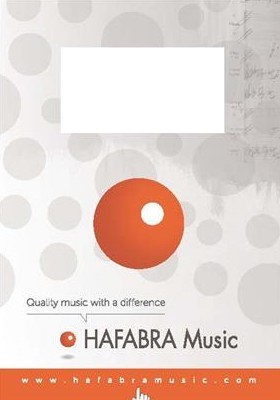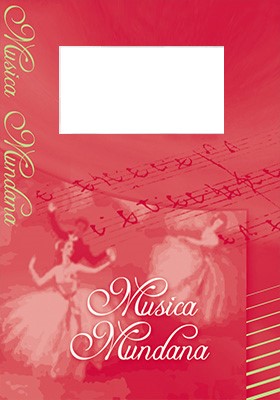Results
-
 £60.42
£60.42Caprice (Euphonium Solo with Brass Band) Andrew Batterham
VIEW SCORE PDF Caprice was written for Matthew van Emmerik, to showcase his virtuosity in an engaging piece of concert music. The work is in theme and variation form, with the primary material being the theme from the last of Paganini's Ventiquattro Capricci per violino solo, a collection of 24 caprices for solo violin. This theme has been the inspiration for similar works by many composers since it was first published, including Liszt, Brahms, Rachmaninov, Benny Goodman and Andrew Lloyd Webber. In this work, the famous theme is treated to a more contemporary approach. The first variation, Capricious, relies on motor rhythms and jagged dialogues between the soloist and the band. It is couched in an organic scale reminiscent of the Phrygian mode. The second variation, Sad, is in direct contrast, acting as a traditional ballad and allowing the soloist to explore the expressive side of the instrument. The third variation, Energetic, is a micro set of variations in itself, designed to display the soloist's innovative technique and stamina. Each section is more challenging than the last, until the work concludes with a whirlwind dance at breakneck speed. Like all of Batterham's recent work, the musical language of Caprice draws upon classical, jazz, funk and ska elements to create a unique sound where anything can happen, and probably will. This arrangement was made possible through Matt's instigation and generosity. To view a video of Matthew van Emmerik performing the version with brass band please visit www.youtube.com/watch?v=D0hsvux_a5o To view a video of Fletcher Mitchell performing the version with piano please visit www.youtube.com/watch?v=NOZ6KRldDVo Sheet music available from: UK - www.brassband.co.uk USA - www.solidbrassmusic.com Instrumentation: Euphonium Soloist Soprano Cornet Eb Solo Cornet Bb Repiano Cornet Bb 2nd Cornet Bb 3rd Cornet Bb Flugel Horn Bb Solo Horn Eb 1st Horn Eb 2nd Horn Eb 1st Baritone Bb 2nd Baritone Bb 1st Trombone Bb 2nd Trombone Bb Bass Trombone Euphonium Bb Bass Eb Bass Bb Percussion 1-3
In Stock: Estimated dispatch 1-3 working days
-
£60.00
Soaring the Sky - Geert Jan Kroon
Soaring the Sky is a short piece in a typical brass band style with influences from popular music. It captures a feeling of freedom: a feeling of flying in total harmony with your surroundings. To soar literally means flying without propulsion, furthermore it means to ascend to an unknown height.
-
£60.00
Eilean Nan Gobhar for Ten Piece Brass Ensemble - Geert Jan Kroon
Eilean Nan Gobhar was commissioned by the Symposium Symphony of Soils. "Our soil is not doing well, which has a major impact on our food security, climate and health." The answer is living agriculture, without artificial fertilizers and chemicals! "
-
 £60.00
£60.00The swing march - MANCINI Henry - SMEETS Roland
Estimated dispatch 14-21 working days
-
 £60.00
£60.00Kia hora te marino - TIN Christopher - SMEETS Roland
Estimated dispatch 14-21 working days
-
 £60.00
£60.00Baba Yetu - TIN Christopher - SMEETS Roland
Estimated dispatch 14-21 working days
-
 £60.00
£60.00Bring me little water Silvy - Traditional - FREDERIKSSON Par
Estimated dispatch 14-21 working days
-
 £60.00
£60.00Arirang - Traditional - SMEETS Roland
Estimated dispatch 14-21 working days
-
 £60.00
£60.00Dix petites pieces - FRISCH Jean-Paul
Estimated dispatch 14-21 working days
-
 £60.00
£60.00Blaenwern - ROWLANDS W.P. - SMEETS Roland
Estimated dispatch 14-21 working days
